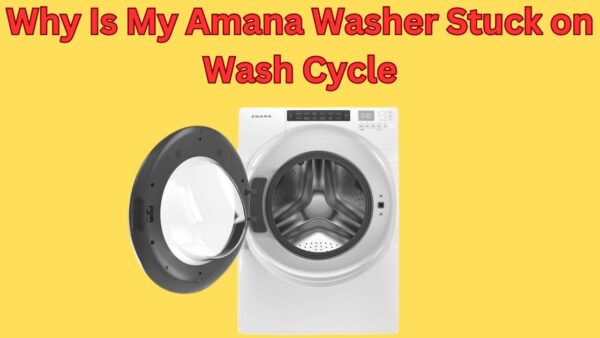Is your Samsung dishwasher leaving puddles instead of sparkling clean dishes? You’re not alone. A dishwasher that won’t drain can be a real hassle, turning your kitchen into a mini lake and leaving you with a pile of dirty dishes. But don’t worry—there are several common issues that can cause this problem, and many of them are easy to fix.
Common Causes Of Drainage Issues
Several factors contribute to drainage issues in your Samsung dishwasher. Understanding these causes helps address the problem effectively.
Clogged Filters
Clogged filters block water flow and prevent draining. Check the filter, usually located at the bottom of the dishwasher, for food debris and other obstructions. Cleaning the filter regularly ensures proper drainage and improves dishwasher performance.
Kinked Drain Hose
A kinked drain hose restricts water movement, leading to drainage failure. Inspect the hose for bends or twists. Unkinking or repositioning the hose can restore normal drainage functionality.
Faulty Drain Pump
A faulty drain pump prevents effective water removal. Listen for unusual noises during the drain cycle, indicating a malfunction. If the pump isn’t working, it’s essential to replace it to resolve draining issues.
If you need additional help, contact My Appliance Geek for expert assistance.
Steps To Troubleshoot The Issue
If your Samsung dishwasher isn’t draining, you can follow these steps to identify and solve the problem.
Check The Filter
Check the filter for food debris or buildup. A clogged filter can prevent water from draining properly. Remove the filter by twisting it counterclockwise, rinse it under warm water, and scrub any stubborn particles with a soft brush. Reinstall the filter securely.
Inspect The Drain Hose
Inspect the drain hose for kinks or obstructions. A kinked hose restricts water flow, causing drainage issues. Straighten any bends you find and ensure the hose isn’t pinched. Also, check for blockages within the hose, as clearing them can restore proper drainage.
Test The Drain Pump
Test the drain pump for functionality. Listen for a humming noise when the dishwasher should be draining; if you don’t hear anything, the pump might be faulty. If needed, you can remove the drain pump for inspection and replace it if it’s damaged or not working correctly.
For additional help, feel free to contact My Appliance Geek. We’re here to assist you with any further issues you may encounter.
Tips For Prevention
Maintaining your Samsung dishwasher reduces the likelihood of drainage issues. Implement these practices to keep your appliance running smoothly.
Regular Maintenance
Check filters monthly for food debris, and clean them as needed. Inspect drain hoses for kinks and straighten them to promote proper water flow. Schedule an annual professional service to ensure internal components function correctly. Run a hot water cycle with white vinegar to help remove grease and buildup.
Using The Right Detergents
Choose detergents specifically designed for dishwashers. Follow the manufacturer’s dosage recommendations to avoid excess suds that may block drainage. Avoid using regular dish soap, as it can create too many bubbles and lead to leaks.
For extra assistance, just contact My Appliance Geek.
When To Call A Professional
If your Samsung dishwasher still isn’t draining after troubleshooting, calling a professional can save you time and effort. Expert help ensures your appliance gets the attention it needs to function properly.
Signs You Need Expert Help
- Persistent Water Accumulation: If water remains in the bottom of the dishwasher after repeated cycles, it signals a more serious issue.
- Unusual Noises: Any loud grinding, buzzing, or clanking sounds during operation may indicate a malfunction.
- Frequent Error Codes: If the display shows error codes related to drainage consistently, that often requires professional diagnosis.
- No Response: If the dishwasher doesn’t start or drain at all, it’s time to seek help.
- Check Qualifications: Ensure the technician has relevant certifications to work on appliances.
- Read Reviews: Look for customer testimonials online to gauge the technician’s reliability and service quality.
- Ask About Experience: Make sure the technician has ample experience working specifically on dishwashers.
- Get Estimates: Request service estimates upfront to know the expected costs.
For additional assistance, contact My Appliance Geek. We’re here to help with any issues you encounter with your Samsung dishwasher.
Conclusion
Dealing with a Samsung dishwasher that won’t drain can be frustrating but you’ve got the tools to tackle it. By checking the filter and drain hose and testing the pump, you can often get things back on track without too much hassle. Remember that regular maintenance goes a long way in preventing these issues from popping up.
If you’ve tried everything and the problem persists don’t hesitate to call in a pro. They can help you sort out any stubborn issues and get your dishwasher running smoothly again. Keep your kitchen flowing and your dishes clean!
Frequently Asked Questions
Why is my Samsung dishwasher not draining?
Many Samsung dishwasher owners face drainage issues due to clogged filters, kinked hoses, or faulty drain pumps. These problems can often be resolved with simple maintenance steps.
How can I fix a clogged filter on my dishwasher?
To fix a clogged filter, remove it from your dishwasher and rinse it under warm water to remove food debris. Make sure to clean it regularly to maintain proper drainage.
What should I check if the drain hose is kinked?
Inspect the drain hose for any twists or bends that might restrict water flow. If you find any kinks, simply straighten the hose to ensure proper drainage.
How can I test if my drain pump is working?
You can test the drain pump by listening for a humming noise during the draining cycle. If there’s no sound, the pump may be faulty and could need inspection or replacement.
What are some preventive tips for dishwasher drainage issues?
Regularly check and clean your filters and hoses, run a hot water cycle with white vinegar monthly, and use recommended detergents to reduce buildup and prevent clogs.
When should I call a professional for help?
Consider calling a professional if you experience persistent water accumulation, unusual noises, recurring error codes, or if your dishwasher is unresponsive. A technician can diagnose and fix complex issues.
How do I choose a qualified technician?
Look for technicians with good reviews and experience specifically with dishwashers. Always inquire about their qualifications and request a service estimate before proceeding.
Can My Appliance Geek help with other appliance issues?
Yes, My Appliance Geek can assist with a variety of appliance problems beyond just dishwashers. Contact them for expert help and solutions for any appliance-related issues you may face.


Name: Joseph Title: Owner and Founder Website: myappliancegeek.com
Biographical Info:
Joseph, the creative mind and founder behind myappliancegeek.com is a distinguished expert in the field of home appliances and technology.
Education: Joseph holds a prestigious degree in Appliance Engineering from a renowned institution in the United States, [Stanford University], where he gained a profound understanding of appliance design, mechanics, and technology.
Professional Experience: Joseph’s professional journey spans over [18 ] years in the home appliance industry. His extensive experience includes working with industry-leading appliance manufacturers, prominent retailers, and appliance repair services.
Entrepreneurship: In [2000], Joseph founded myappliancegeek.com, a platform dedicated to providing comprehensive information, advice, and solutions for those seeking guidance in the world of appliances.
Passion for Appliances: Joseph’s unwavering passion for home appliances stems from his belief in their pivotal role in improving our quality of life.
Contributions to the Industry: Joseph’s commitment to the home appliance industry is evident through his extensive writing and speaking engagements.
Community Involvement: Joseph is not only an online presence but also an active member of the community, frequently engaging in outreach programs, local workshops, and charitable initiatives.


